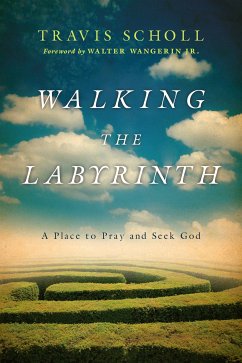
Meditation and Communion with God (eBook, ePUB)
Versandkostenfrei!
Sofort per Download lieferbar
21,95 €
inkl. MwSt.
Weitere Ausgaben:

PAYBACK Punkte
11 °P sammeln!
As culture has become at once more secular and more religiously pluralistic, a renaissance of interest in the spiritual disciplines has been sparked in evangelical Protestant circles. Mounting levels of stress, burnout and spiritual dryness among those in ministry has only stoked this desire for spiritual nourishment and renewal.John Jefferson Davis helps us recover the practice of meditation on Scripture as he explores the biblical and theological foundations rooted in the arrival of "the age to come" in Jesus Christ. Indeed by virtue of our union with Christ, the Triune God of the Bible draw...
As culture has become at once more secular and more religiously pluralistic, a renaissance of interest in the spiritual disciplines has been sparked in evangelical Protestant circles. Mounting levels of stress, burnout and spiritual dryness among those in ministry has only stoked this desire for spiritual nourishment and renewal.John Jefferson Davis helps us recover the practice of meditation on Scripture as he explores the biblical and theological foundations rooted in the arrival of "the age to come" in Jesus Christ. Indeed by virtue of our union with Christ, the Triune God of the Bible draws near to his people so that they may also draw near to him.Meditation on God's revelation has always been central to enjoying communion with the Father through the Son and in the Spirit. Davis gives us fresh and practical guidance on removing the obstacles that block our fellowship with God and listening to Scripture in ways that can enrich our worship, faith, hope and love.
Dieser Download kann aus rechtlichen Gründen nur mit Rechnungsadresse in A, B, BG, CY, CZ, D, DK, EW, E, FIN, F, GR, HR, H, IRL, I, LT, L, LR, M, NL, PL, P, R, S, SLO, SK ausgeliefert werden.













